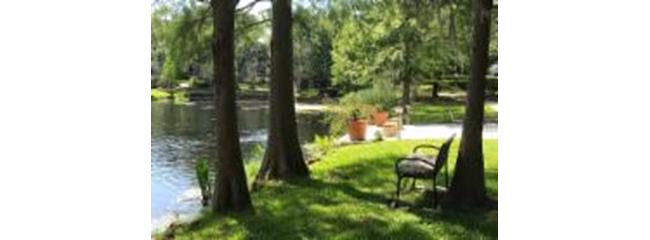
by Anne Mooney | Jun 22, 2021 | Zoning and Development
Keep Progress Point Green
Open Letter to Mayor and Commissioners
Guest Columnist Charley Williams / June 22, 2021
Over 360 folks signed our online petition.
‘We, the undersigned residents of Winter Park, envision a once-in-a-lifetime opportunity to increase greenspace as the city considers the future of Progress Point. We believe the highest and best use is a 4.4-acre park with shade trees, walking paths and benches where residents can escape their homes and enjoy relief from the concrete urban chaos of today’s world.
Even better, the park would link Mead Botanical Garden and Martin Luther King, Jr. Park, offering greater recreational opportunities for those who want to explore the city without a car. There is a national push for every American to have a park within a 10-minute walk. This greenspace can help us reach that goal.
Surveys across the U.S. show that we want and need more park space. Once paved, these limited assets are lost forever. We ask for your stewardship and protection of this unique city-owned parcel for generations to come.’
Sharing some of the comments we’ve received:
“The re-wilding of this property would put Winter Park on the map internationally for all the right reasons.
“Florida has less park space per population than any other state.”
“Green space is our most important asset.”
“This is a rare opportunity, and there may not be too many more.”
“The neighborhood needs green space. Look kitty-corner across the street (across the railroad tracks and opposite the playground), where there once stood two houses is now a cluster of rental houses. The neighborhood wanted community gardens there. Instead, we got an extension of Rollins. No more development.”
“Winter Park needs more open green space to balance the ratio of people and the spaces they need outside their homes.”
“Green space is essential to life.”
“Winter Park deserves more green spaces.”
“The Charm and Beauty of Winter Park is the beautiful parks and gardens. Please do everything to preserve the natural beauty of Winter Park.”
With continued appreciation, in community.
To comment or read comments from others, click here →
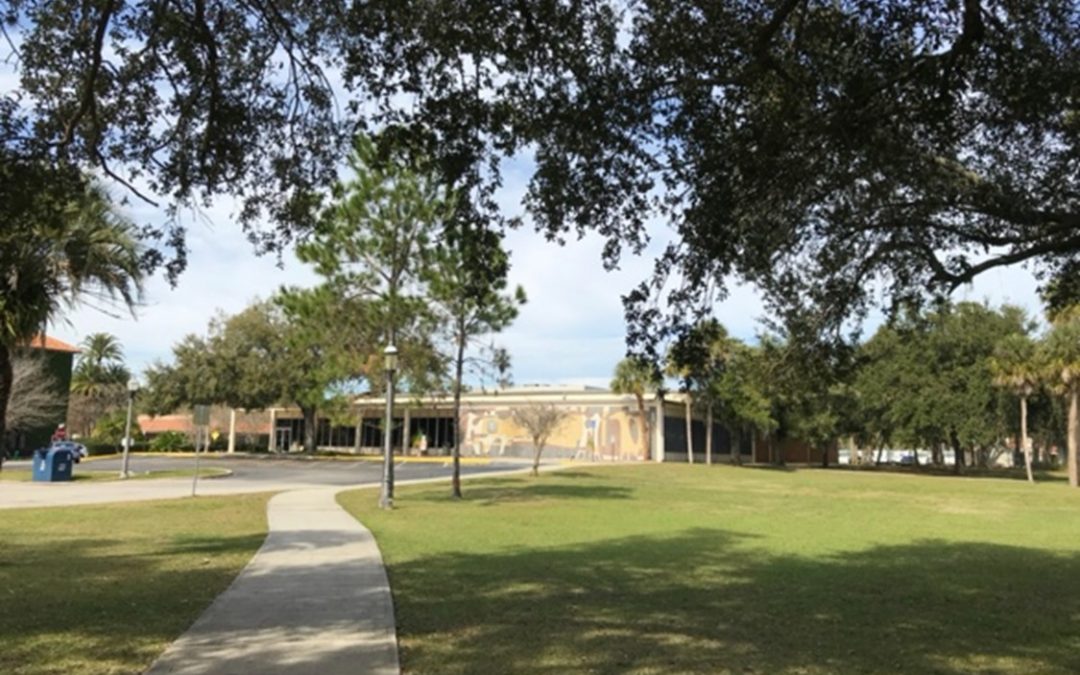
by Anne Mooney | Jun 20, 2021 | News, Taxes, Zoning and Development
Open Letter to Current Mayor & Commissioners
Do not blow this opportunity again. Now is the time for the Post Office!
Guest Columnist Sally Flynn / June 20, 2021
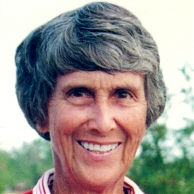 On June 9, the Orlando Sentinel published a letter from six former Winter Park mayors cautioning the current Winter Park Commission against acquiring the Winter Park Post Office property for the purpose of expanding Central Park.
On June 9, the Orlando Sentinel published a letter from six former Winter Park mayors cautioning the current Winter Park Commission against acquiring the Winter Park Post Office property for the purpose of expanding Central Park.
I do not care what these past mayors think about how we should spend our money, and I don’t believe most Winter Park citizens do, either.
In 1886, When Charles Hosmer Morse deeded the land that is now Central Park to the City, that deed came with a restriction protecting the park from commercial use or development. For 135 years, Winter Parkers have honored that restriction and have taken pride in enhancing and expanding the park.
Protecting the Park
Over the years, City leaders have created a web of local ordinances to protect the park. In 1999, a citizens’ initiative put in place a prohibition to keep the City from building on land in or adjacent to Central Park. In 2009, the height of properties affecting the open vista of Central Park was limited to two stories. In 2011, the downtown area that includes Park Avenue, Central Park and the Post Office was placed on the National Register of Historic Places. In the 2016 Visioning process, Winter Park residents stated unequivocally that one of their top priorities is the expansion of green space within our community.
City has long history of effort to acquire the Post Office
In 2014, then-Congressman John Mica arranged a meeting with the U.S. Postal Service (USPS) and the City, and a series of productive negotiations commenced. The USPS agreed to allow their facilities to be separated between a downtown retail facility and a separate distribution facility. This made the project more affordable and was agreeable to both the City and USPS.
USPS was willing to move
By January 2015, negotiations had progressed. USPS Vice-president of Facilities wrote in response to City Manager Randy Knight’s suggestion of a particular site, “Randy, after completing a few layouts, we believe that the site has high potential of working for us (subject to a 30% design). I think you should proceed with your discussion with the City Council.”
City stalls negotiations
Instead of following the USPS V.P.’s recommendations to continue discussions at the Commission level, however, staff prepared an agenda item recommending the Commission delay negotiations and, instead, prepare a notice of disposition to sell Progress Point and use the proceeds to purchase the Post Office. Mayor Steve Leary moved to cease negotiations with the Post Office; his motion passed on a 3-2 vote.
CRA funding becomes available
Fast-forward to October 28, 2019, when the City Commission voted 5-0 to execute a Resolution in support of acquiring the USPS property to expand Central Park, dedicating this land to park use in perpetuity. In January 2020, the Community Redevelopment Agency (CRA) voted to allocate funding for the Post Office acquisition in the CRA Capital Improvement Plan.
On January 27, 2020, the Commission voted to direct the City Manager to move forward to negotiate and execute a Letter of Intent to buy the Post Office Property. The City now has funds budgeted for FY 2021 and FY 2022 to bring this project to fruition.
Now is the time
Our CRA is scheduled to go out of existence in 2026. After that happens, putting together the necessary funds to acquire the Post Office property will be very difficult, if not impossible. Now is the time for our City to show it has the courage of its convictions: now is the time to act.
To comment or read comments from others, click here →
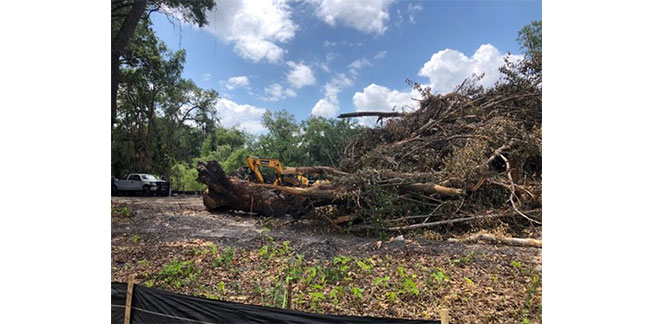
by Anne Mooney | Jun 5, 2021 | Tree Canopy, Zoning and Development
Howell Branch Chain Saw Massacre
by Anne Mooney / June 5, 2021
Once again, 1298 Howell Branch Road is in the news. There is no memory care facility this time, just four lots for single family homes. Sound simple? We’ve been here before.
Developer changes course in 2017
After the Villa Tuscany Memory Care Center failed in 2017 to receive approval, the developer, Villa Tuscany Holdings, LLC, revised its request and received City approval to divide the property into four single-family lots under the current R-3 zoning. The 3.77-acre property, of which only 2.09 acres is buildable because that is the portion above the Ordinary High Water elevation of approximately 66 feet, is located between two bodies of water. The larger to the south is Lake Temple; to the northeast is an unnamed sinkhole.
Four lake-front lots planned
Since all four are lakefront lots, new home construction must be reviewed and approved by the Planning & Zoning (P&Z) Board. The P&Z review focuses on tree preservation, storm water management, making sure plans are compatible with the grade of the lot and maintaining lake views. Each individual plan involves a negotiation with Urban Forestry Department, especially if a specimen tree is involved.
Developer begins work in May 2021
When the developer obtained a permit to begin work on the property in May, a 54-inch oak tree was to be preserved. In addition, a silt fence was erected to prevent clearing along a 50-foot margin from the lakefront to protect neighbors from noise and light pollution from Howell Branch Road.
54-inch oak takes the fall
On May 14, according to Parks and Recreation Director Jason Seeley, who oversees the City’s Urban Forestry Department, a subcontractor arrived with heavy equipment to clear the land. As the clearing began, the crews, unsupervised by the developer, proceeded to take down the silt fence, clear all the way to the lake front and cut down the large specimen oak.
Even after a Stop-Work order and a Code Violation were issued, City staff observed the contractors continuing to clear the land. The City contacted the developer directly, the Stop-Work order is still in place and work on the premises has halted.
Draft tree preservation ordinance planned
A draft Tree Preservation Ordinance has been approved by the Tree Preservation Board and is awaiting review by P&Z in July or August. Changes contemplated include a matrix that uses a range of species, conditions and sizes to generate a mitigation number. Mitigation is strengthened in some areas. For instance, the ordinance proposes separating residential from commercial and increases mitigation requirements for trees on residential property.
Most trees lost to residential development
We lose more trees to residential development than we do to commercial,” said Jason Seeley. “The biggest impact on trees over time is with residential development and building codes. When a small house is torn down to build a McMansion, we lose about 60 percent of available space for plantings on those residential lots. You just can’t plant your way out of that problem.”
Commissioner Sheila DeCiccio pointed out how important it is for alert residents to keep the City informed. “We have a very small Urban Forestry staff,” she said, “and they can’t be everywhere at once. In the case of the Howell Branch property, City staff was responding to neighbors who reported unpermitted activity on the site.”
In an email blast sent June 1, DeCiccio wrote about the proposed tree preservation ordinance. “This revision has several more steps to go through before it reaches a final form to be voted on by the City Commission,” she wrote. “The ultimate aim is to codify an easy-to-understand mitigation / compensation scheme reflective of the value that the citizens of Winter Park place on their trees.
“The tree canopy is an integral part of what makes Winter Park so special. The more we know, the better we can protect this precious resource.”
To comment or read comments from others, click here →

by Anne Mooney | May 26, 2021 | Zoning and Development
Open Letter to Mayor and Commissioners
We Need More Quiet Zones – Protect Progress Point
by Guest Columnist Charley Williams / May 26, 2021
 A friendly reminder. Just a few steps away from the Progress Point site sits Martin Luther King, Jr. Park, which has been stripped of well over 20 percent of its natural green space to make way for the Library-Events Center.
A friendly reminder. Just a few steps away from the Progress Point site sits Martin Luther King, Jr. Park, which has been stripped of well over 20 percent of its natural green space to make way for the Library-Events Center.
You have a chance to even the score and sooth sore feelings by using Progress Point to restore to our community some of that lost passive green space. Yet, it’s beginning to sound like you plan turn it into some sort of Church Street Station retail-a-palooza.
The entire length of Orange Ave is already a retail zone, and half of Progress Point is already slated to become parking.
How about using what’s left for a park bench with shade trees, bike racks, yoga mats, a drinking fountain, and a pond or fountain? But, please, a park bench without a discarded paper taco tray sitting on it, without a half-full soft drink can underneath it and without a nearby trash can overflowing with IPA cans. And without canned music spilling from a food court.
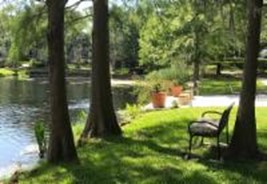 We do not need to be entertained 24/7. Parks, by definition, don’t need to be “activated.” What we need is the viewshed. What we need is some relative peace and quiet. We need to able to hear ourselves think. We would like to enjoy the natural light.
We do not need to be entertained 24/7. Parks, by definition, don’t need to be “activated.” What we need is the viewshed. What we need is some relative peace and quiet. We need to able to hear ourselves think. We would like to enjoy the natural light.
We have only one Progress Point. For the sake of the soul of our city and the souls who live here, honor it by keeping it green.
Please urge your designers to do better.
With appreciation for all you do.
To comment or read comments from others, click here →

by Anne Mooney | May 11, 2021 | News, Zoning and Development
$13 Million in Stimulus Funds Earmarked for Winter Park
by Anne Mooney / May 11, 2021
Winter Park stands to receive almost $13 million in federal stimulus funds earmarked through the American Rescue Plan (ARP), providing us a rare opportunity to rebuild from the pandemic and to shape future programs.
Tomorrow’s Commission discussion is one you may want to tune into, as it could directly affect many people and organizations in Winter Park.
Commission will decide where to spend the money
At its Wednesday, May 12, meeting, the Commission will undertake to prioritize the allocation of ARP dollars, which they anticipate will arrive in two payments. The first payment of $7,426,723 should arrive this month, May 2021; the second payment in the same amount should come in May 2022. The ARP requires all funds to be expended by the end of 2024.
Some dollars are restricted
Although guidance from the Feds is oblique (surprise!), City staff estimates about $3 million may be spent on any purpose the City decides, as these funds are intended to replace losses incurred as a result of the pandemic. A suggestion in a federal document reads, in part: “(1)(A) “. . . assistance to households, small businesses, and non-profits, or aid to impacted industries such as tourism, travel, and hospitality.”
The remaining $10 million will be subject to restrictions imposed by the legislation. Clearly allowed are transfers of funds to non-profits, economic development studies, water and sewer enhancements and internet improvements.
Other infrastructure dollars under discussion at the federal level
Less clear is whether the City can use these funds for transportation improvements. City staff is monitoring discussions at the federal level of a separate $2 trillion infrastructure bill, as that money could fund transportation improvements that are not eligible under the ARP.
Thoughts from the April 28 workshop
On April 28, the Commission held a workshop to discuss setting priorities for ARP funds. Funding that can only be spent on eligible categories fell into four broad categories: 1) recurring non-profit partners, excluding Dr. Phillips Performing Arts Center, 2) households and small businesses, 3) tourism, travel and hospitality, and 4) broadband.
Interesting among the categories was the discussion around “recurring non-profit partners.” First was the exclusion of the Dr. Phillips Performing Arts Center, which will still get its promised $100,000, but no extra money from the ARP pot of dollars.
Local organizations will receive extra ARP dollars
Commissioners discussed using the ARP funds to add 50 percent to current City funding levels for each of the following non-profits. For further detail and exact dollar amounts, click here: Local Organizations
Winter Park Public Library
Historical Association
United Arts
Polasek
Mead Garden
Winter Park Day Nursery
Blue Bamboo
Welbourne Day Nursery
Enzian Theater
Winter Park Playhouse
Depugh Nursing Home
Heritage Center (Crealde)
WPPL – just another non-profit?
The Winter Park Public Library, currently the recipient of the largest tranche of City dollars, could garner an additional $828,000 through the ARP – if it is treated the same as the other non-profits that receive City support. The question of whether or not to make the library a separate line item or to include it with the rest of the non-profits has yet to be answered.
“Apples and peaches,” says Weaver
“I would prefer the Commission discuss library funding from the ARP as a line item separate from the other non-profits,” said Commissioner Todd Weaver. “I don’t think we can compare the effect the pandemic had on the library with the effect it had on the other non-profits, which are dependent on sales or attendance at events. They are apples and peaches.”
Sullivan is of like mind.
“I am in favor of continuing the funding, which is approximately two-thirds of their budget,” said Commissioner Marty Sullivan. “However, it seems apparent that financial impact of COVID on the library would be less than on the other non-profits, because they already rely primarily on the City for their funding, whereas the others do not.”
Commissioner Carolyn Cooper said she thought it might be a good idea to consult one of the City Advisory Boards as to the appropriate allocation of funds among these groups.
Tune in tomorrow to find out.
To comment or read comments from others, click here →
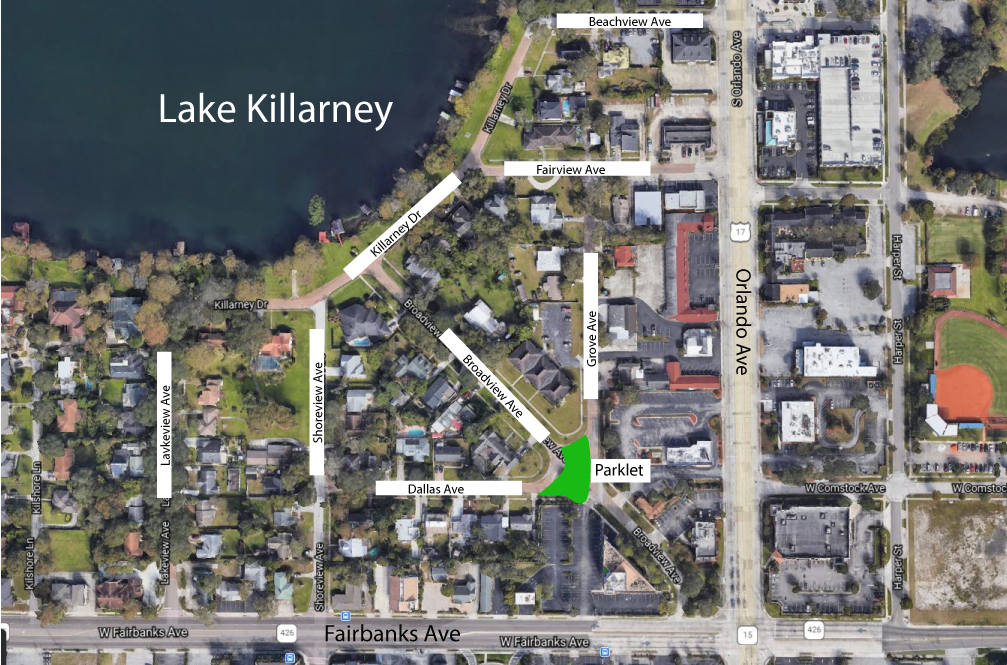
by Anne Mooney | Mar 30, 2021 | News, Zoning and Development
Killarney Estates – No Longer the ‘Forgotten Triangle’
Can the City Reunite the Neighborhood?
In late January, plans to build the Henderson Hotel in the triangle bordered by 17-92, Fairbanks Avenue and Lake Killarney, known as Killarney Estates, ran headlong up against Comprehensive Plan Policy 1-J-9, which reads, “Protect Single-Family Residential Use in the Killarney Neighborhood from Non-Residential Land Use Encroachment. The City shall preserve and protect the single-family residential land use within the Killarney neighborhood from commercial and office encroachment . . . .”
Just before midnight on January 27 — before the Commission could vote on Commissioner Marty Sullivan’s motion to deny – attorney for developer Adam Wonus withdrew the application to build the hotel. It was Game Over.
Killarney Neighborhood’s cut-through traffic
Despite the outcome for the Henderson, Adam Wonus’s two-year effort to win approval for his project produced some positive results for this neglected corner of Winter Park by shining a light on serious traffic problems and general infrastructure neglect by the City. For years, Killarney residents had been plagued by cut-through traffic trying to avoid the major intersection of 17-92 and Fairbanks Avenue, and the development of way-finding apps has only made matters worse as Waze and others direct drivers going from 17-92 to Fairbanks (or the reverse) through the back streets of the neighborhood.
City Planners to the rescue
When Adam Wonus began meeting with the Lake Killarney neighbors about his proposed hotel, they described their traffic woes and Wonus alerted City Planners to their need for help. Commissioners and City staff met with the neighbors and decided to field test a traffic barrier on the southern leg of the intersection of Killarney Dr. and Fairview Ave. The City also created a permanent physical separation of Grove Ave. from Dallas Ave. and Broadview Ave. Adam Wonus even paid for the planter bollards that formed the barrier at Killarney Drive and Fairview Ave.
The traffic calming measures worked, cut-through traffic has slowed to a trickle and most Killarney neighbors are living happily ever after.
Unintended Consequences – A Neighborhood Divided
The demise of the Henderson project, however, has left what would have been the commercial hotel property separated from the rest of the neighborhood. The successful measures to tame cut-through traffic in the residential area southwest of Fairview now separate that part of the neighborhood from the portion north and east of Fairview.
The northeast part of the neighborhood is a mix of residential, commercial and office, and part of it fronts on 17-92, but there are still residential lakefront parcels in that area which most of the Killarney neighbors and the all of the City Commission wish to protect from commercial development.
How to put the neighborhood back together?
At a special Commission meeting February 11, 2021, the Commission directed staff to come up with additional options to protect the residential lakefront property and to reintegrate those properties into the existing transportation network. City staff also has initiated negotiations with mapping companies to eliminate cut-through routes through the Killarney neighborhood.
Decisions on traffic solutions must be based on future land use
At the March 24 Commission meeting, Planning Department staff presented 12 possible solutions to the remaining traffic problems.
Commissioner Carolyn Cooper quickly pointed out how the cart may have gotten ahead of the horse. “There are very different possible traffic solutions, depending on what the land use is,” she said. “Before we talk about zoning, let’s talk about what future land use really makes sense on these five or six parcels. The traffic solution must be based on a resolution of future land use by this Commission.”
Commission agrees to future workshop to discuss future land use
Of the possible solutions to the traffic problems, the City’s first option describes measures that either are already in place or well into the planning stages. It includes the planter bollard barrier at Fairview and Killarney Dr., and a small park area that would cut off the connection between Broadview, Dallas and Grove Avenues. This area already has been cordoned off with temporary barriers and cones. The only thing missing was a funding source. To build the “parklet,” as it is called, the City had to find $165,000 in additional funds.
CRA or Parks Acquisition Fund?
Since the intersection of Broadview, Dallas and Grove falls within the CRA, money could come from CRA, or because it’s a ‘parklet,’ the money could come from the Parks Acquisition Fund.
Commissioner Sheila DeCiccio made a motion to move forward with this option, to leave the bollards as they are, build the ‘parklet’ with $165,000 from the Parks Acquisition Fund and to hold a workshop to discuss future land use and a more permanent traffic solution based on the future land use. Commissioner Todd Weaver seconded. Weaver amended the motion to add approximately $3,600 to reimburse Adam Wonus for the cost of the bollards, with a second from Commissioner Marty Sullivan.
The main motion, as amended, passed on a 5-0 vote.
To comment or read comments from others, click here →










Recent Comments